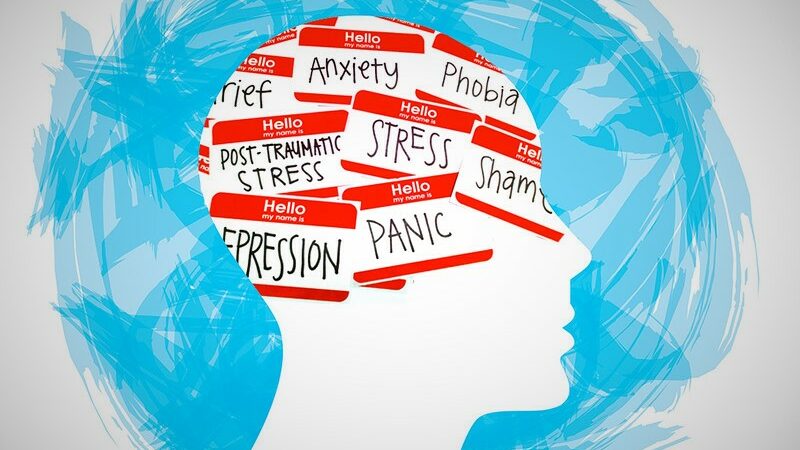'An enduring legacy from this pandemic should instead be putting mental health on par with physical health'

Victoria Poku-Amanfo is a researcher at the Institute for Public Policy Research (IPPR)
An enduring mental health crisis needn’t be a legacy of this pandemic. Yet, failure to intervene to address the economic, physical, and psychological impacts of the pandemic risks leaving an irreversible strain on the nation’s mental health. The pandemic has forced many to confront declining mental health and the reality of the country’s failing mental health services. The government should take this moment of respite from high infection rates during the winter peak season, to take the first steps in fixing our failing mental health system.
Even before the pandemic, mental health services were at breaking point. It’s estimated that up to 75 per cent were not getting what they need via the NHS. Demands for mental health support had squeezed the NHS to capacity, with adult and children’s mental health services struggling to reach and offer extended support to everyone in need.
Now Covid-19 has made the situation even worse. New IPPR research shows the toll the pandemic has had on the nation’s mental health – referrals among children for eating disorders have doubled and for self-harm they have risen 25 per cent. People aged 16-39 and disabled people have both experienced a higher peak than older ages and non-disabled people across depression rates.
For many people, the pressures of lockdown and shielding played a role deteriorating mental health. This is not to disparage public health measures implemented to stop the NHS from being overwhelmed. These were needed. But there must be an acknowledgement that isolation can have detrimental impact on mental health and now the onus is on government to address their consequences on the nation’s mental health.
As the pandemic has proved, health is wealth. Failing to take leadership on mental health will exact deep economic consequences.
New LSE analysis, presented in IPPR’s annual State of Health and Care report shows the cost on lifetime earnings of a mental health problem in adolescence is £600,000 for a man and almost £250,000 by age 42 for a woman. Yet evidence shows that intervention, even at late stages, can have positive effects even in the worst of cases. All this amounts to a massive wave of pressure on top of the already creaking mental health services.
In the face of this growing mental health crisis, the government has announced just £500 million for a mental health recovery plan – a mere fraction of the hundreds of billions allocated to physical health services. This is indicative of the pre-pandemic status quo, where mental health care existed as a ‘nice to have’ – rather than a necessity.
The government have said they are aiming to increase healthy life expectancy by 2035, as part of their ’levelling up’ plans. But they can’t do this if they don’t put their money where their mouth is on mental health. An enduring legacy from this pandemic should instead be putting mental health on par with physical health – putting it at the heart of healthcare policy, with adequate funding, workforce, and efforts to prevent illness emerging.
Fortunately, there is much the government can do. Most urgently, they should increase capacity in NHS mental health services. Achieving this means getting in front of the influx of demands set to rise as a result of the pandemic by expanding preventative care such as 24/7 liaison mental health services and accelerated care packages upon referrals. This is necessary for all but particularly children’ and adolescent mental health services (CAHMs) that will also be feeling the brunt of the education disruption. Finally, we need to protect those who give care, so expanding staff mental health support to ensure that they are valued and able to give the best care possible.
They can look to supercharge research and development and innovation on mental health with adequate investment. As it stands, £29 is spent per person on cancer research each year, while only half of that is spent on mental health research.
But most importantly, they can work to prevent mental ill health at its source. IPPR research shows poverty is driving more than 1.3 million cases of depression. People in poverty and those living in the poorest parts of the country are three times more likely to be diagnosed with depression. Addressing the mental health crisis also means tackling poverty. As a start, this should mean restoring the £20 uplift to Universal Credit, and we need far more ambitious statutory sick pay policy, and more targeted action on the ever-growing cost of living crisis.
To ensure a mental health crisis isn’t an enduring legacy of the pandemic, the government must prioritise more funding and capacity for services, but more importantly, work to tackle to drivers of mental ill health at their source.
Left Foot Forward doesn't have the backing of big business or billionaires. We rely on the kind and generous support of ordinary people like you.
You can support hard-hitting journalism that holds the right to account, provides a forum for debate among progressives, and covers the stories the rest of the media ignore. Donate today.



